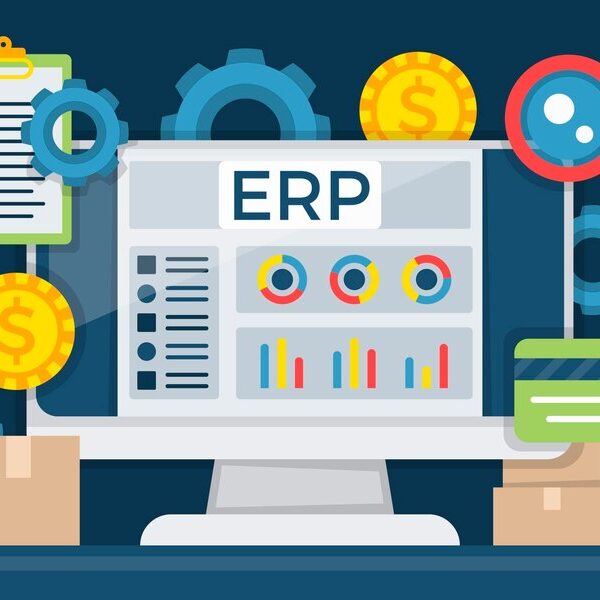The rapid advancement of technology has revolutionized various industries, and the banking sector is no exception. Among the most transformative technologies are blockchain and artificial intelligence (AI), which have shown great potential in enhancing the development of banking applications. This article delves into the impact of these technologies on banking app development, focusing on their influence on costs and efficiency.
Introduction
Banking app development has become a crucial area of innovation as financial institutions strive to meet the growing demand for seamless, secure, and efficient digital banking services. The integration of blockchain and AI technologies into banking applications promises to address numerous challenges while providing significant cost savings and efficiency improvements.
Understanding Blockchain in Banking App Development
Blockchain, the technology underpinning cryptocurrencies like Bitcoin, is essentially a decentralized digital ledger that records transactions across multiple computers. Its key characteristics—transparency, immutability, and security—make it an ideal solution for various banking operations.
The Role of AI in Banking App Development
AI encompasses a range of technologies, including machine learning (ML), natural language processing (NLP), and robotic process automation (RPA). These technologies enable banking applications to perform tasks that typically require human intelligence, such as analyzing large datasets, recognizing patterns, and making decisions.
Enhancing Security and Trust with Blockchain
Immutable and Transparent Transactions
One of the primary benefits of blockchain technology in banking app development is its ability to create immutable and transparent transaction records. Each transaction is verified and recorded in a block, which is then linked to the previous block, forming a chain. This ensures that once a transaction is recorded, it cannot be altered or deleted, significantly reducing the risk of fraud and enhancing trust among users.
Secure Peer-to-Peer Transactions
Blockchain facilitates secure peer-to-peer (P2P) transactions without the need for intermediaries. This not only speeds up the transaction process but also reduces costs associated with third-party involvement. For banking apps, this means faster and cheaper money transfers, benefiting both the banks and their customers.
Smart Contracts
Smart contracts are self-executing contracts with the terms of the agreement directly written into code. They automatically execute and enforce contractual agreements when predefined conditions are met. In banking app development, smart contracts can streamline processes such as loan disbursements, insurance claims, and compliance checks, reducing the need for manual intervention and minimizing errors.
AI-Driven Efficiency in Banking Apps
Personalized Customer Experiences
AI technologies, particularly machine learning and data analytics, enable banking apps to offer personalized experiences to customers. By analyzing user data, AI can provide tailored financial advice, product recommendations, and fraud alerts. This not only enhances customer satisfaction but also increases engagement and loyalty.
Automated Customer Support
AI-powered chatbots and virtual assistants are becoming increasingly common in banking apps. These tools can handle a wide range of customer inquiries, from account balances to transaction history, 24/7. This reduces the workload on human customer support agents, allowing them to focus on more complex issues and improving overall efficiency.
Fraud Detection and Prevention
AI excels at detecting patterns and anomalies in large datasets, making it a powerful tool for fraud detection and prevention in banking apps. Machine learning algorithms can analyze transaction data in real-time, identifying suspicious activities and flagging them for further investigation. This proactive approach helps banks mitigate fraud risks and protect their customers’ assets.
Cost Implications of Blockchain and AI in Banking App Development
Initial Development Costs
Implementing blockchain and AI technologies in banking apps requires significant upfront investment. Banks need to hire specialized talent, invest in robust infrastructure, and ensure compliance with regulatory requirements. However, these initial costs are often offset by the long-term savings and efficiency gains that these technologies provide.
Operational Cost Savings
By automating processes and reducing the need for intermediaries, blockchain and AI technologies can lead to substantial operational cost savings. For instance, blockchain’s ability to facilitate direct P2P transactions eliminates fees associated with third-party payment processors. Similarly, AI-driven automation reduces the need for manual intervention, cutting down labor costs.
Enhanced Fraud Detection Reducing Losses
Fraudulent activities can result in significant financial losses for banks. AI-powered fraud detection systems help minimize these losses by identifying and preventing fraud in real-time. Additionally, the immutable nature of blockchain transactions makes it more difficult for fraudsters to manipulate data, further reducing the risk of financial crime.
Real-World Applications and Case Studies
JPMorgan Chase’s Blockchain Initiatives
JPMorgan Chase has been at the forefront of blockchain innovation in the banking sector. The bank developed its own blockchain platform, Quorum, to streamline various banking operations. One notable application is the Interbank Information Network (IIN), which leverages blockchain to reduce friction in cross-border payments. By improving transaction transparency and reducing the time required for payment settlements, JPMorgan Chase has demonstrated the potential of blockchain to enhance efficiency and reduce costs in banking app development.
Bank of America’s AI-Driven Customer Service
Bank of America has integrated AI into its banking app through its virtual assistant, Erica. Erica leverages machine learning and NLP to provide personalized financial advice, transaction alerts, and budgeting tips to customers. Since its launch, Erica has helped millions of customers manage their finances more effectively, showcasing the impact of AI on enhancing customer experiences and operational efficiency.
HSBC’s Blockchain-Based Trade Finance Platform
HSBC has utilized blockchain technology to revolutionize trade finance through its platform, Voltron. By digitizing and automating the trade finance process, Voltron reduces the time required to process letters of credit from weeks to hours. This not only enhances efficiency but also significantly lowers the costs associated with trade finance, benefiting both the bank and its clients.
Challenges and Considerations
Regulatory Compliance
The integration of blockchain and AI in banking app development must comply with stringent regulatory requirements. Banks need to ensure that their use of these technologies adheres to data protection laws, anti-money laundering (AML) regulations, and other relevant guidelines. Navigating the regulatory landscape can be complex and may require substantial resources.
Data Privacy and Security
While blockchain offers enhanced security, it is not immune to cyber threats. Ensuring the security of blockchain networks and AI systems is paramount to protecting sensitive customer data. Banks must invest in robust cybersecurity measures to safeguard their applications and maintain customer trust.
Integration with Legacy Systems
Many banks still rely on legacy systems for their core operations. Integrating blockchain and AI technologies with these existing systems can be challenging and may require significant modifications. Banks need to carefully plan and execute their integration strategies to avoid disruptions and ensure seamless operation.
Future Outlook
Continued Innovation
The adoption of blockchain and AI in banking app development is still in its early stages, and continued innovation is expected. As these technologies mature, we can anticipate even more advanced applications that further enhance efficiency and reduce costs. For instance, advancements in AI could lead to more sophisticated predictive analytics, while developments in blockchain could enable more seamless cross-border transactions.
Collaboration and Partnerships
Collaboration between financial institutions, technology providers, and regulatory bodies will be crucial for the successful implementation of blockchain and AI in banking app development. By working together, stakeholders can address challenges, share best practices, and create standards that facilitate the widespread adoption of these technologies.
Customer-Centric Solutions
Ultimately, the goal of integrating blockchain and AI into banking app development is to create customer-centric solutions that offer greater convenience, security, and efficiency. As banks continue to explore the potential of these technologies, they will be better positioned to meet the evolving needs of their customers and stay competitive in the digital age.
Conclusion
Blockchain and AI are poised to revolutionize banking app development by enhancing security, improving efficiency, and reducing costs. While the initial investment in these technologies can be substantial, the long-term benefits far outweigh the costs. Real-world applications and case studies have demonstrated the transformative potential of blockchain and AI in the banking sector. However, banks must navigate regulatory challenges, ensure data privacy and security, and effectively integrate these technologies with their existing systems. By doing so, they can unlock new opportunities for innovation and deliver superior digital banking experiences to their customers.
The future of banking app development lies in the successful integration of blockchain and AI, and financial institutions that embrace these technologies will be well-positioned to thrive in the ever-evolving digital landscape. As the banking sector continues to evolve, the adoption of blockchain and AI will undoubtedly play a pivotal role in shaping the future of banking applications, driving cost savings, and enhancing operational efficiency.
In conclusion, banking app development stands at the cusp of a technological revolution, with blockchain and AI at its core. The journey towards fully realizing the potential of these technologies may be challenging, but the rewards in terms of cost savings, efficiency, and customer satisfaction make it a worthwhile endeavor for forward-thinking financial institutions.












